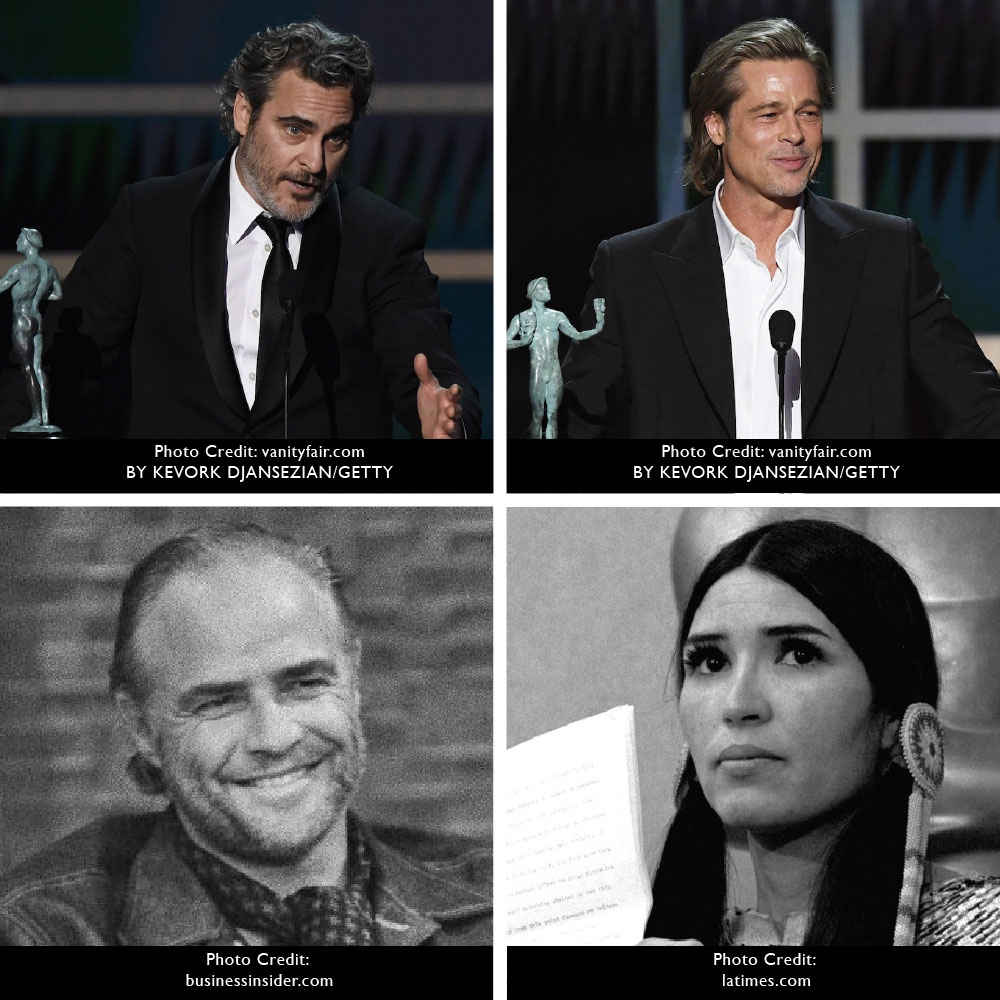
The Academy Awards has a long history of being a place where celebrities share their political views and this year was no exception. Joaquin Phoenix won the Oscar for Best Actor for his brilliant performance in Joker. He used his time on stage to make his case for the environment and the treatment of animals. Brad Pitt used his moment in the spotlight to take a jab at the leaders of the United States Senate. Some people think actors should keep their political views to themselves, arguing that they are not informed enough or that it is inappropriate for them to use their fame to pontificate to an audience who is there to be entertained not propagandized. While I certainly don’t enjoy getting an unwanted lecture from a celebrity on a political issue, especially if I disagree, I respect their right to do so. As long as they understand that the audience has a right to judge them as well. Any celebrity who chooses to be a political advocate must be prepared for the potential consequences that go along with that. Celebrities have fame because the public has decided to recognize them as such, but fame can be fleeting and if a celebrity alienates his or her audience, the result can be the end or diminishment of a career. I’m not suggesting that you should boycott an actor who has political views that differ from your own. I certainly do not. Joaquin Phoenix criticized people who put cream in their coffee, and I like cream in my coffee, and I disagree with the politics of Jon Voight and James Woods, but I still loved them both in Ray Donovan.
One of my earliest memories of a celebrity taking a political stand was when Marlon Brando refused the Academy Award for The Godfather as an opportunity to protest the treatment of Indigenous Americans in film. I remember him being mocked at the time, but even as a kid I was impressed that he was willing to risk his career and his life of privilege for something he believed in. I also remember that there was a lot of discussion about the plight of Indigenous Americans after that.
There was a time, not too long ago, when Americans could disagree with each other on politics and still be friends. Popular opinion tells us that it is a bad idea to discuss politics with your friends and family. I couldn’t disagree more. I actually think one of the reasons we are so divided as a nation is that we don’t discuss politics with one another anymore. Instead, we let the media make our political arguments for us. We post on social media the talking points fed to us by Fox News, MSNBC, Rush Limbaugh, and Rachal Maddow and demonize anyone who disagrees with us.
So, I have no problem with celebrities talking politics. We all have the right and ability to change the channel if we choose. But it is even better if rather than canceling someone we disagree with, we instead take some time to listen to them and engage in conversation and civil discourse once again. It is, after all, what actually made America great in the first place.
With the presidential election only three weeks away, partisans on both sides are taking off the gloves with rhetoric that vilifies their opponents and fires up their minions. Most people believe that our country is more divided than ever. Indeed, the days when liberal and conservative candidates can debate their views respectfully seem like a distant memory. At the risk of oversimplifying things too much, let me cut to the chase about what is driving the divisions in the country.
NAHREP shares data at conferences to build a more accurate narrative about the Latino community from an economic perspective. Sharing that data with attendees, influential business leaders, and media at the event helps achieve that goal while arming them with information that can give them a competitive advantage with their businesses.
The best businesses and the most successful people don't just perform a task and make money. They solve a problem or facilitate an opportunity. Uber, Tesla, Apple, Netflix, and Microsoft approached their business with that mindset. They were designed to solve humanity's most significant challenges and opportunities. However, even the smallest companies can develop solutions that people care about.
